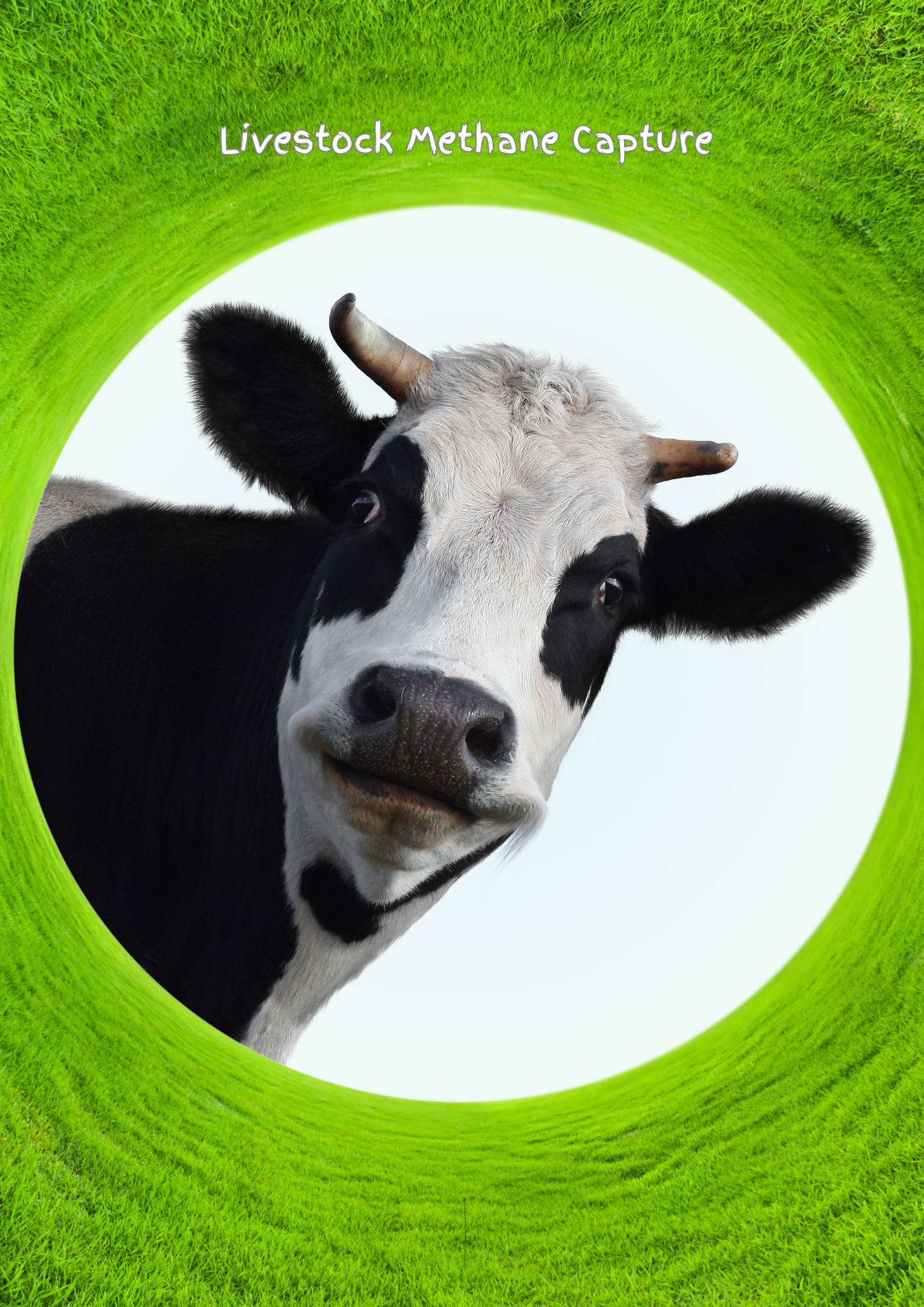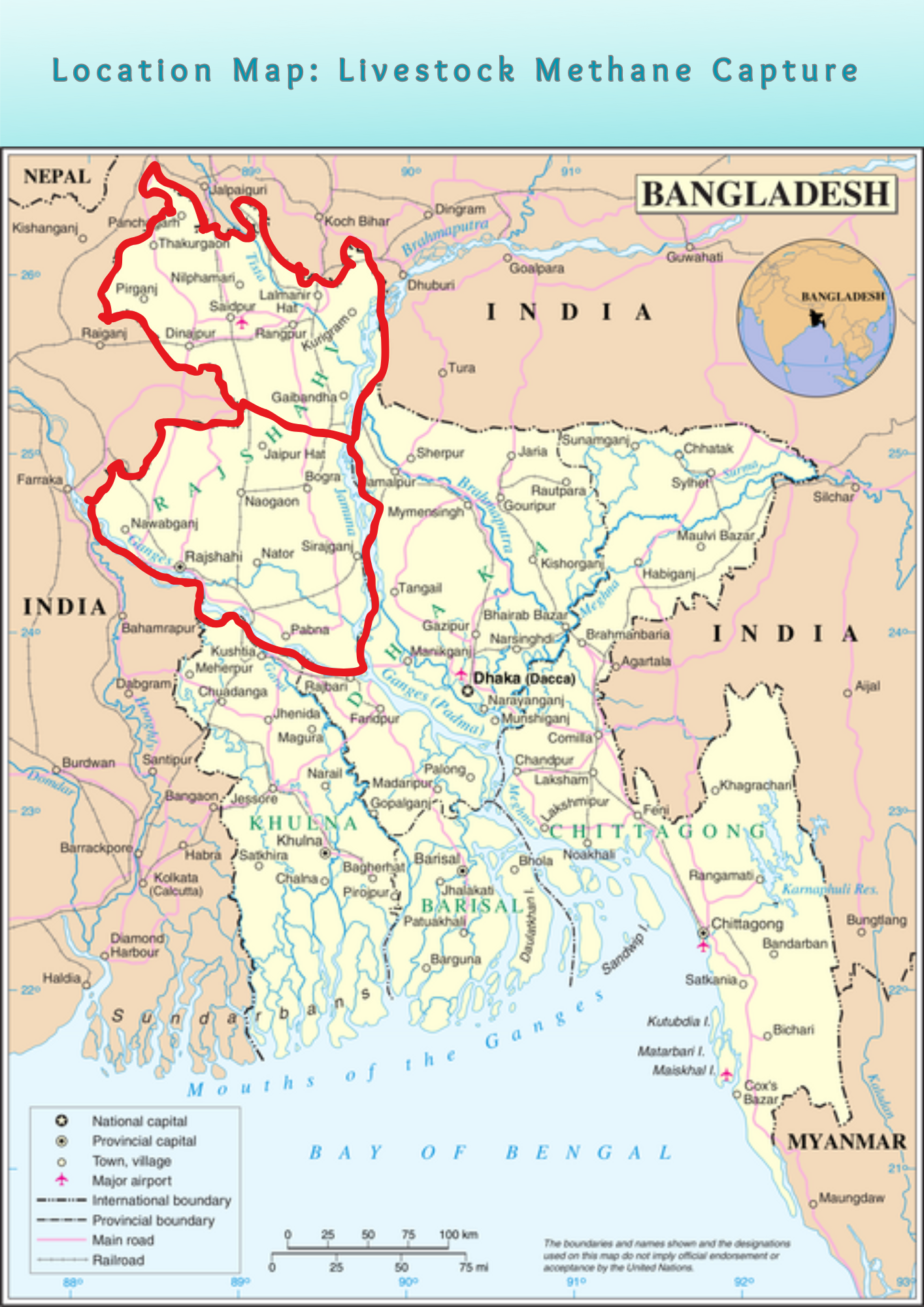Project Details

🇧🇩 Rangpur Division (8 districts): Rangpur, Dinajpur, Panchagarh, Thakurgaon, Lalmonirhat, Nilphamari, Kurigram, and Gaibandha; Rajshahi Division (8 districts): Chapai Nawabganj, Rajshahi, Natore, Naogaon, Joypurhat, Pabna, Bogura, and Sirajganj
The project aims to establish biogas plant apprx. 100,000m3 over a 10 years of period, capturing an average of 6.18,675 tonnes CO₂ per annum.
The project will focus on transforming livestock waste into a sustainable energy source, addressing both environmental concerns and rural energy needs. One of the core strategies is to bring existing biogas plants under carbon credit initiatives, allowing rural farmers and communities to monetize waste management efforts while reducing greenhouse gas emissions.
In addition, the project will develop new biogas plants where necessary, ensuring that livestock waste is efficiently utilized to generate clean and renewable energy. This initiative not only enhances energy security but also significantly reduces the reliance on traditional biomass fuels, such as firewood, which contribute to deforestation and indoor air pollution. Project aim to onboard nearly 130,000 cubic meter of biogas plant across the region.
To further optimize resource utilization, the project will focus on revitalizing dilapidated or abandoned biogas plants, making them functional again and improving their operational efficiency. By tracking methane emissions and converting them into carbon credits through biogas production, the project aligns with global carbon reduction strategies. A key aspect of the initiative includes recording GPS locations of all biogas plants, ensuring transparency, accurate monitoring, and verification of emission reductions under the carbon credit framework.
The adoption of biogas technology will significantly improve the cooking environment in rural households by lowering emissions, leading to better air quality and reduced exposure to harmful smoke, particularly benefiting women who spend extended hours in traditional kitchens. The reduction in indoor air pollution is expected to mitigate cooking-related health hazards, such as respiratory diseases and eye irritation, ultimately enhancing the overall well-being of rural families.
Moreover, the project will promote sustainable livelihood opportunities by integrating smart livestock management with biogas production, enabling smallholder farmers to generate additional income through carbon credits while adopting eco-friendly farming practices. This initiative fosters economic empowerment and enhances community resilience by providing affordable and sustainable energy solutions, reducing dependency on expensive and polluting energy sources. By implementing waste-to-energy solutions, the project not only mitigates climate change impacts but also contributes to a more sustainable and healthier rural ecosystem.
Project ID: TBD
Idea Generation & Pre Feasibility to Depelop Project Proposal
Conducted Feasibility Study
Project Proposal Development
Investor Pitching to Obtain Required Investment
Environmentally, curbing methane emissions from livestock waste mitigates climate change, aligning with global goals while preserving local ecosystems. Cleaner waste management reduces water contamination, safeguarding community health. Socially, the project empowers women by reducing time spent collecting fuel and fostering entrepreneurship through biogas cooperatives. Skill development in biogas technology enhances local capacity, creating green jobs and promoting gender equity.
By intertwining emission reduction with livelihood enhancement, this initiative fosters resilience, equity, and environmental stewardship, positioning Bangladesh’s rural communities as pioneers in sustainable development. Through carbon finance, it transforms climate challenges into opportunities, ensuring long-term socio-ecological harmony.
Bangladesh, a nation grappling with energy poverty, environmental degradation, and climate vulnerabilities, has turned to biogas technology as a transformative solution. In the agriculturally rich regions of Rangpur and Rajshahi divisions, biogas plants are emerging as a beacon of sustainable development, addressing energy needs, reducing greenhouse gas emissions, and uplifting rural livelihoods. These regions, characterized by dense livestock populations and agrarian economies, are uniquely positioned to harness biogas potential, turning organic waste into clean energy and fostering socio-economic resilience.



House - 92, Road-05, Block-D,
Basundhara Residential Area, Baridhara,
Dhaka-1212, Bangladesh
House-37, Road-11, Block-H
Banani, Dhaka-1213 Bangladesh